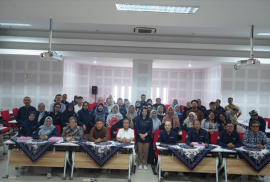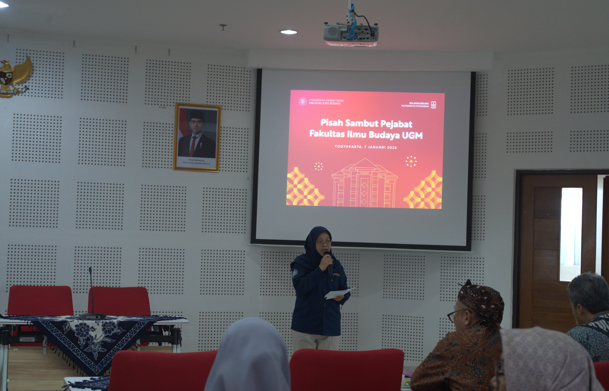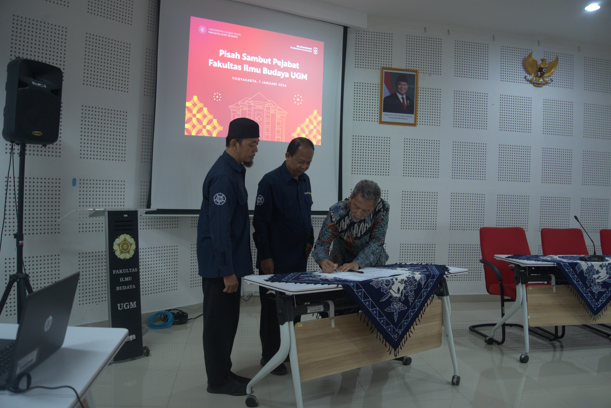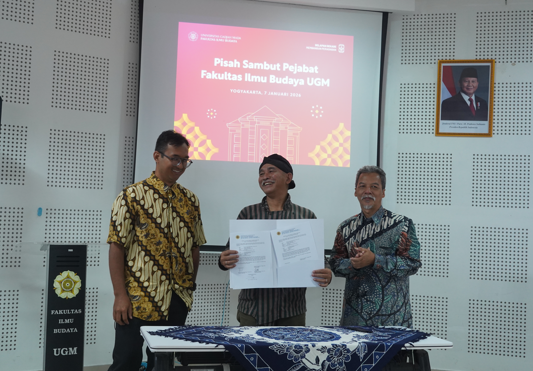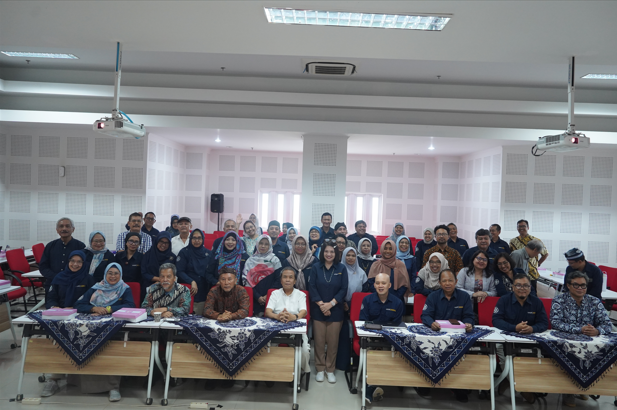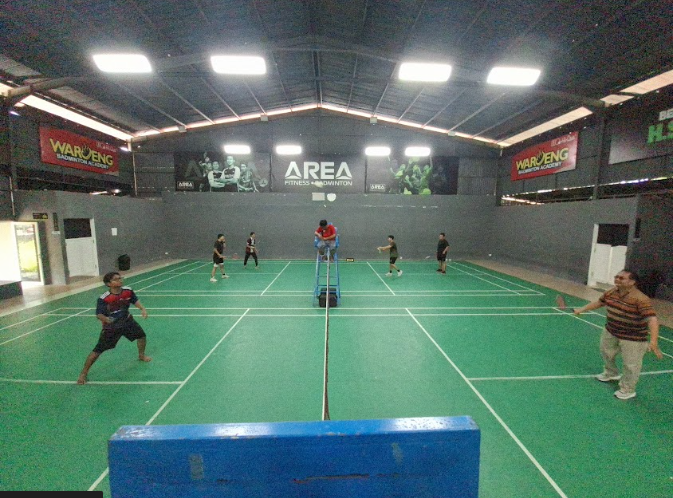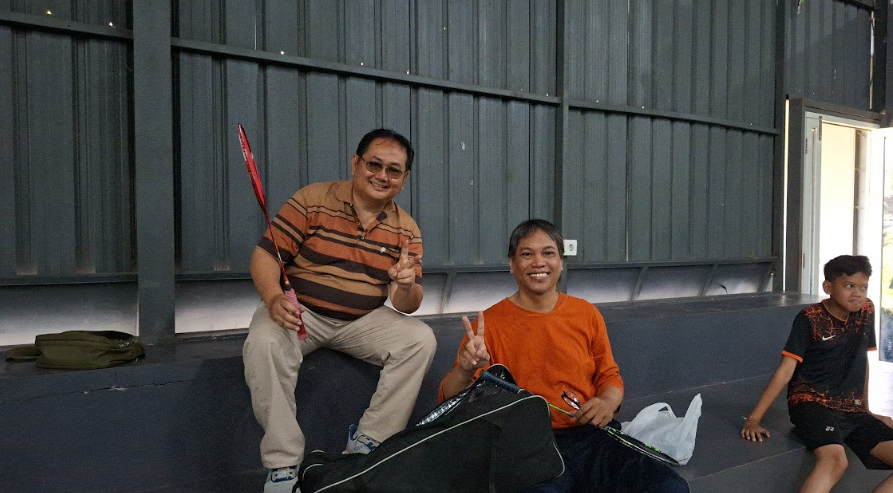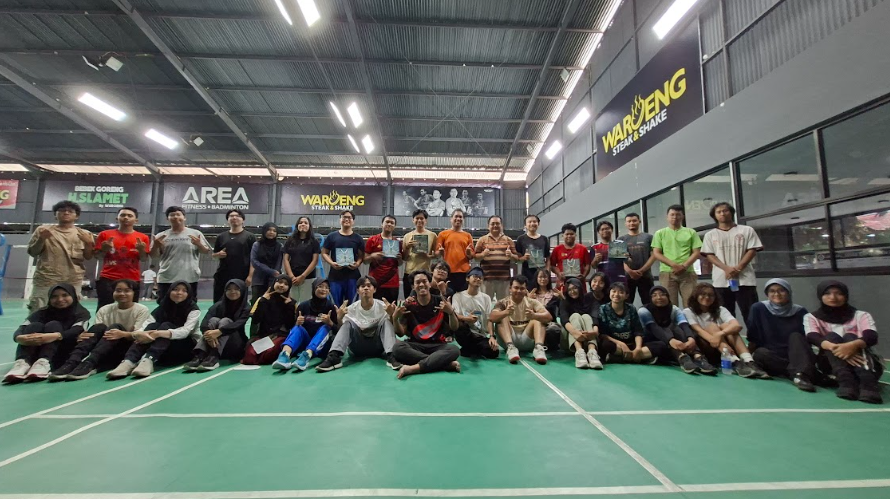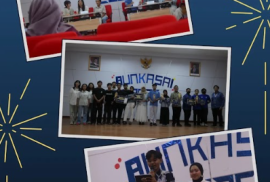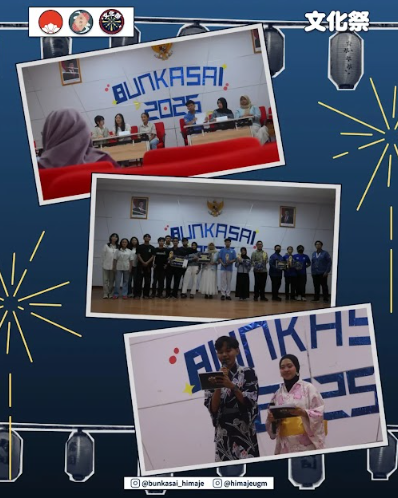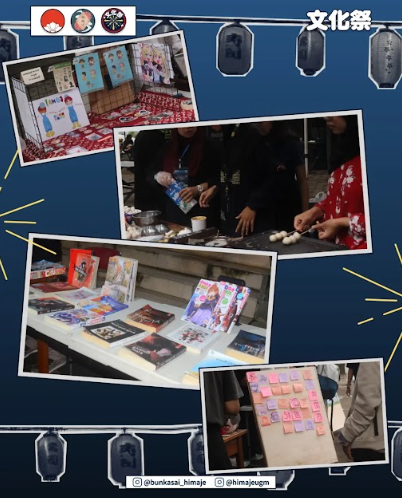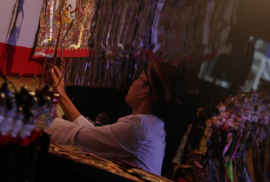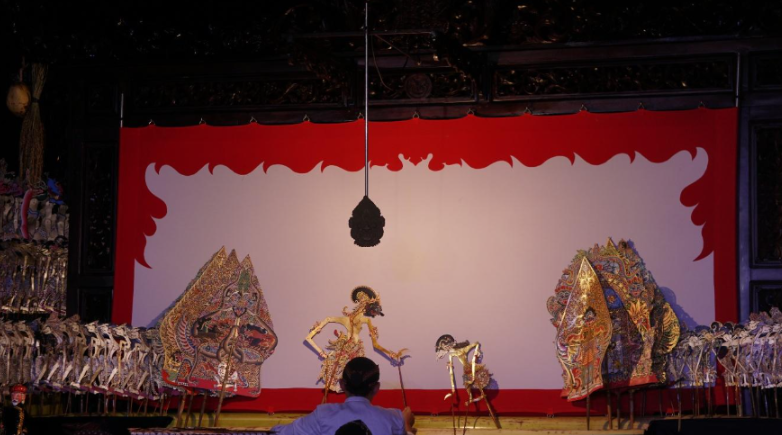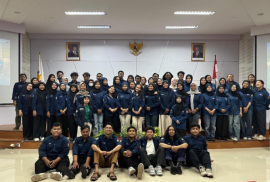Yogyakarta, January, 7, 2026 — The Faculty of Cultural Sciences (FIB), Universitas Gadjah Mada, held a Farewell and Welcome Ceremony for Faculty Officials, which was accompanied by the signing of the official handover documents for Heads of Departments and Heads of Study Programs. This event marked an important moment in ensuring leadership continuity and strengthening institutional governance oriented toward improving educational quality and sustainable institutional development.
The event commenced with the signing of the official handover documents, symbolically represented by the outgoing and incoming Heads of Departments. The handover and signing were carried out by the Heads of the Departments of Anthropology, Archaeology, Language and Literature, and History, reflecting a shared commitment to continuing the academic leadership relay within the Faculty of Cultural Sciences.
In his remarks, Drs. Sudibyo, M.Hum., expressed his gratitude for the cooperation and support of the entire academic community during his previous term of office. He conveyed his hope that the new leadership would further enhance the faculty’s performance and strengthen FIB’s role in delivering high-quality higher education. On the same occasion, Drs. Sudibyo congratulated the newly appointed officials and offered his apologies for any shortcomings that may have occurred during his tenure.
Remarks on behalf of the Heads of Departments and Heads of Study Programs were delivered by Dr. Fahmi Prihantoro, S.S., S.H., M.A. He stated that the new Heads of Departments had been officially inaugurated at the university level earlier that morning. According to him, the mandate entrusted to the new leadership carries significant responsibility, considering the achievements attained by the Faculty of Cultural Sciences to date. He affirmed the commitment of the new management to continue the leadership responsibly while fostering collaboration and the sharing of experiences to sustain academic and institutional excellence.
Meanwhile, the Dean of the Faculty of Cultural Sciences, Prof. Dr. Setiadi, M.Si., expressed his appreciation to the former Heads of Departments and Heads of Study Programs for their dedication and contributions over the past five years. He emphasized that a number of strategic achievements had been accomplished, ranging from the strengthening of faculty management systems and improvements in academic performance to progress toward international accreditation for all study programs. These achievements, he noted, reflect sound institutional management and a strong orientation toward building resilient institutional capacity.
Furthermore, Prof. Setiadi expressed optimism regarding the future development of the Faculty of Cultural Sciences, including plans for the utilization of a new building scheduled to begin operation in July 2026. The new facility is expected to support the development of language and linguistic studies, as well as the downstreaming and contextualization of humanities scholarship to ensure its continued relevance in addressing contemporary challenges. This initiative forms part of FIB’s commitment to fostering academic innovation, expanding access to quality education, and strengthening the role of cultural studies in sustainable development.
Through this farewell and welcome ceremony, the Faculty of Cultural Sciences reaffirmed its commitment to inclusive, accountable, and sustainable leadership. The orderly and transparent transition of leadership is expected to further strengthen FIB’s contribution to producing high-quality human resources, building robust institutional foundations, and promoting innovation and the application of knowledge for the benefit of society at large.
[FIB UGM Public Relations, Alma Syahwalani]

